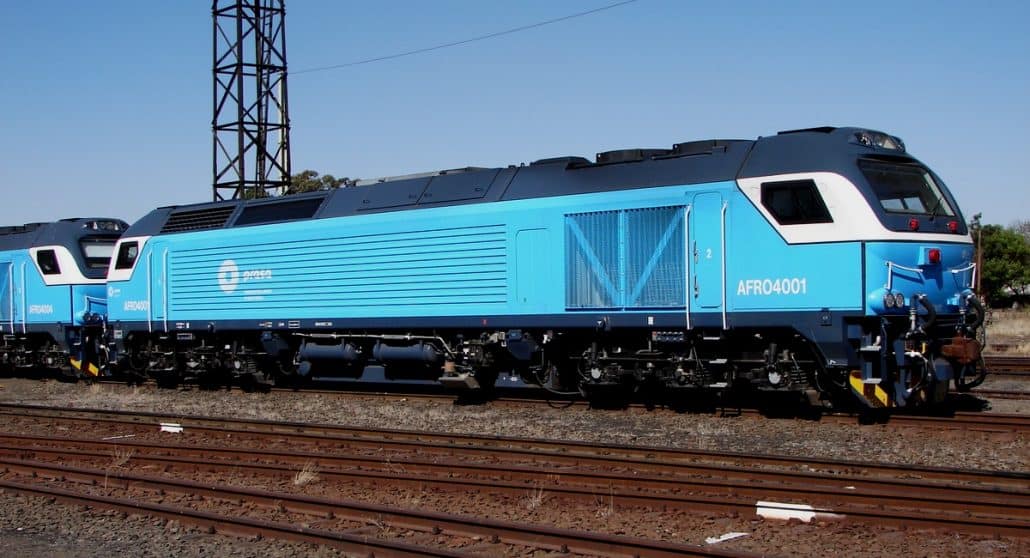Many people who have followed the corruption scandals that have engulfed the Passenger Rail Agency of South Africa (Prasa) over the years will recall one in particular that involved the qualifications fraud case of its former head engineer, Daniel Mtimkulu.
He was convicted of fraud and corruption in 2022 by the Gauteng High Court, after the lid was lifted on his fake national diploma and B-Tech diploma ostensibly from the Vaal University of Technology, as well as a master’s engineering degree from Wits University and a doctorate from Technische Universitat Munchen in Germany.
Mtimkulu resigned in 2015 after being suspended over the allegations related to his qualifications, which he denied at the time. Now the National Prosecuting Authority is pushing for him to serve at least 15 years for the crimes for which he was convicted. His sentencing is expected some time later this year.
Mtimkulu was part of a team that built the Afro 4000 locomotives that were meant to be added to the fleet of Prasa’s passenger trains, and cost in the region of R600-million at the time. The locomotives were part of a large capital procurement process for which Swifambo Rail Leasing was contracted at a cost of R3.5-billion to Prasa. They turned out to be flawed in design, as they were too tall for the standard platforms across the rail network on which the agency operates. Ultimately, the trains could not be used for the purpose for which they were built, and additional modification work had to be done to bring them to the correct standard.
The supposed engineer was lauded publicly by Prasa’s former group CEO, Lucky Montana, who himself would later be accused of playing a critical role in large-scale corruption involving the agency’s locomotives procurement project contracts that ran into billions. Montana criticised the media for their negative reporting on the trains for which Mtimkulu was responsible, and in a now infamous press briefing held in July 2015, claimed that he was being sought by many countries around the world for his expertise, and was the leading engineer in rolling stock – but because he is black, his authority was being undermined.
Mtimkulu was suspended soon thereafter and just two weeks after the briefing, resigned amid an investigation into his qualifications. He had worked for Prasa for about five years and had earned upward of R15-million in that time. The Special Commercial Crimes Court ordered him to pay back R5.7-million of that money, but this has not transpired, resulting in the seizure of some of his property earlier this year by the Asset Forfeiture Unit (AFU). Judge Phillip Venter said Mtimkulu had failed to counter the argument of the state for the R5.7-million to be paid back, and it was on those grounds that he would allow the AFU to seize assets.
Merely an oversight
Mtimkulu revealed in a PowerFM interview in 2019 that he had never had a need to disclose his qualifications to Prasa as he had begun his career with the agency as a trainee in 1998, while it was Spoornet. He would come up the ranks within the organisation based on his strengths and competencies. The reference to him being a “doctor of trains” developed in innocent, light-hearted jokes based on his knowledge of how trains work.
Asked at the time why he did not feel the need to correct the perception that he had a doctorate, particularly when his then boss Montana publicly praised his expertise, Mtimkulu said: “This is where one had really an oversight (sic) … because most of these things were always happening on the run, really the time and space to sit back and say let’s just deal with this thing … it became really an oversight.”
He acknowledged that he could have corrected it, but decided against it when he looked at the output and his ability to deliver on what was expected of him.
Prasa is the subject of a current Special Investigating Unit probe. One of the recommendations of the state capture commission chaired by Chief Justice Raymond Zondo was for the establishment of a separate commission to investigate the corruption allegations brought forward against Prasa and its previous leadership.
A total of 44 employees, including Mtimkulu, were investigated for their role in the Swifambo contract and later suspended, in the course of the probe. Eleven of them would resign over time, leaving only 33 as at the middle of 2022.

